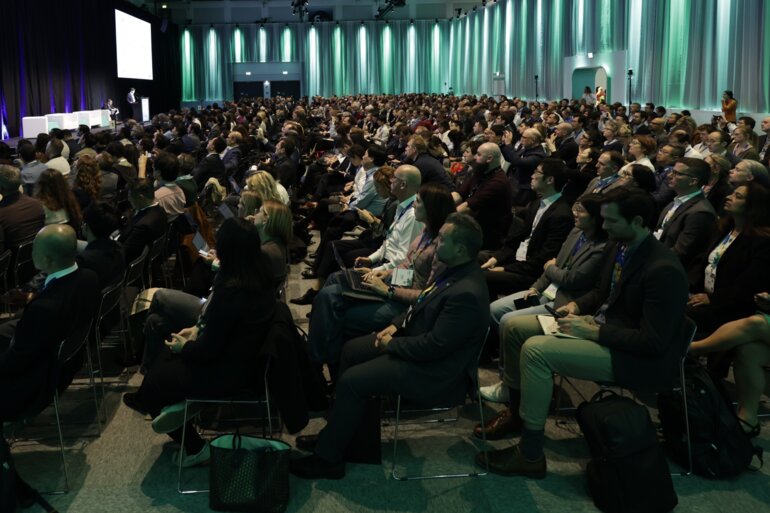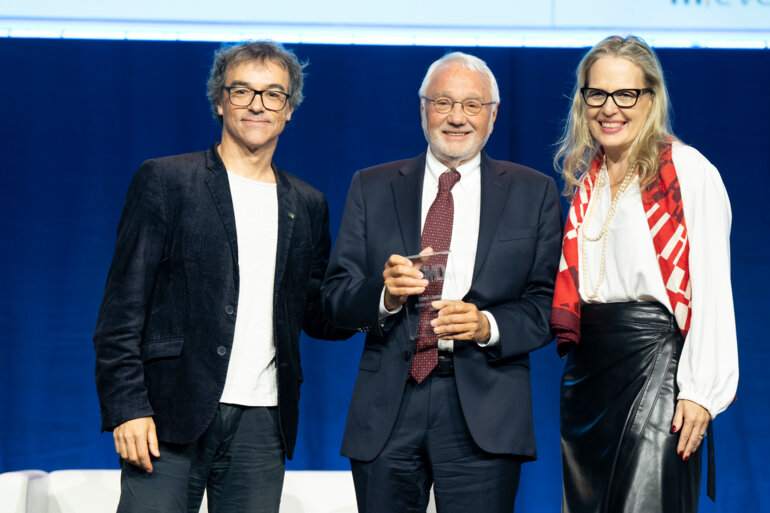Results from ASCEND-7 trial confirms the place of ceritinib as a standard treatment option for patients with ALK+ non-small-cell lung cancer and active brain metastases
The place of ceritinib as a standard treatment option for patients with ALK+ non-small-cell lung cancer (NSCLC) and active brain metastases (BM) has been confirmed by the ASCEND-7 trial. These results will be presented as part of two different Congress tracks today (‘Proffered Paper 1 – NSCLC, metastatic’, 16.00–17.30, Barcelona Auditorium, Hall 2; Abstract 1478O and ‘Proffered Paper – CNS tumours’, 16.00–17.30, Bilbao Auditorium, Hall 5; Abstract 390O).
In this phase II trial, response to ceritinib among 138 patients with ALK+ NSCLC and newly diagnosed or progressive BM was analysed according to prior use of ALK inhibitors (ALKi) and prior brain radiotherapy (RT) (Abstract 1478O). Whole-body overall response rates (ORRs) were 35.7% for prior RT/prior ALKi (n=42), 30% for no prior RT/prior ALKi (n=40), 50% for prior RT/no prior ALKi (n=12) and 59.1% for no prior RT/no prior ALKi (n=44). Corresponding intracranial ORRs were 39.3%, 27.6%, 28.6% and 51.5%, and corresponding extracranial ORRs were 31.0%, 42.5%, 41.7% and 61.4%.
"Before ASCEND-7, no study had specifically looked at CNS disease control with ceritinib,” says Prof. Benjamin Besse from Gustave Roussy, Villejuif, France, commenting on the results. "We can now count ceritinib among the second-generation ALKi, along with alectinib and brigatinib, with confirmed benefit in this patient population.” ASCEND-7 supports the activity of ALK inhibitors for brain metastases when administered prior to brain radiotherapy, thereby allowing radiotherapy – and its potential long-term side effects – to be delayed.
From now on, since second-generation ALKi have similar efficacy, the choice of which is the best agent to use will likely be driven by side effect profiles. Regarding this, Besse cautions that any toxicity considerations should be based on the revised ceritinib dosing regimen – 450 mg/day with food – which is better tolerated than the original regimen of 750 mg/day without food. "Results from trials that were initiated when the original dosing regimen – which had considerable toxicity – was in place, like the one reported today, may lead doctors to overestimate the toxicity of ceritinib,” he explains.
ESMO Congress 2019 abstracts:
- 1478O - Results of the ASCEND-7 phase II study evaluating ALK inhibitor (ALKi) ceritinib in patients (pts) with ALK+ non-small cell lung cancer (NSCLC) metastatic to the brain
- 390O - Efficacy and safety of ceritinib in ALK-positive non-small cell lung cancer (NSCLC) patients with leptomeningeal metastases (LM): Results from the phase II, ASCEND-7 study





